Thermodynamics Quotes
Quotes tagged as "thermodynamics"
Showing 1-27 of 27
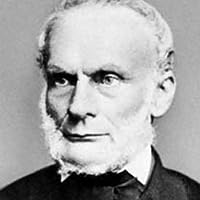
“The fundamental laws of the universe which correspond to the two fundamental theorems of the mechanical theory of heat.
1. The energy of the universe is constant.
2. The entropy of the universe tends to a maximum.”
― The Mechanical Theory of Heat
1. The energy of the universe is constant.
2. The entropy of the universe tends to a maximum.”
― The Mechanical Theory of Heat
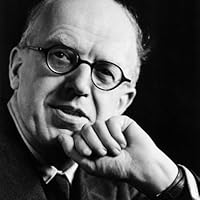
“A good many times I have been present at gatherings of people who, by the standards of the traditional culture, are thought highly educated and who have with considerable gusto been expressing their incredulity at the illiteracy of scientists. Once or twice I have been provoked and have asked the company how many of them could describe the Second Law of Thermodynamics. The response was cold: it was also negative. Yet I was asking something which is about the scientific equivalent of: Have you read a work of Shakespeare's?”
―
―

“The algebraic sum of all the transformations occurring in a cyclical process can only be positive, or, as an extreme case, equal to nothing.
[Statement of the second law of thermodynamics, 1862]”
― Abhandlungen
[Statement of the second law of thermodynamics, 1862]”
― Abhandlungen
“Willard Gibbs did for statistical mechanics and for thermodynamics what Laplace did for celestial mechanics and Maxwell did for electrodynamics, namely, made his field a well-nigh finished theoretical structure.”
―
―
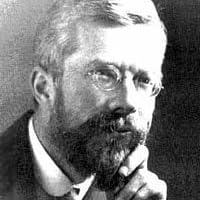
“It will be noticed that the fundamental theorem proved above bears some remarkable resemblances to the second law of thermodynamics. Both are properties of populations, or aggregates, true irrespective of the nature of the units which compose them; both are statistical laws; each requires the constant increase of a measurable quantity, in the one case the entropy of a physical system and in the other the fitness, measured by m, of a biological population. As in the physical world we can conceive the theoretical systems in which dissipative forces are wholly absent, and in which the entropy consequently remains constant, so we can conceive, though we need not expect to find, biological populations in which the genetic variance is absolutely zero, and in which fitness does not increase. Professor Eddington has recently remarked that 'The law that entropy always increases—the second law of thermodynamics—holds, I think, the supreme position among the laws of nature'. It is not a little instructive that so similar a law should hold the supreme position among the biological sciences. While it is possible that both may ultimately be absorbed by some more general principle, for the present we should note that the laws as they stand present profound differences—-(1) The systems considered in thermodynamics are permanent; species on the contrary are liable to extinction, although biological improvement must be expected to occur up to the end of their existence. (2) Fitness, although measured by a uniform method, is qualitatively different for every different organism, whereas entropy, like temperature, is taken to have the same meaning for all physical systems. (3) Fitness may be increased or decreased by changes in the environment, without reacting quantitatively upon that environment. (4) Entropy changes are exceptional in the physical world in being irreversible, while irreversible evolutionary changes form no exception among biological phenomena. Finally, (5) entropy changes lead to a progressive disorganization of the physical world, at least from the human standpoint of the utilization of energy, while evolutionary changes are generally recognized as producing progressively higher organization in the organic world.”
― The Genetical Theory of Natural Selection
― The Genetical Theory of Natural Selection
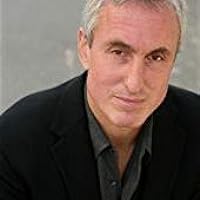
“The point to keep in mind is that you don't lose fat because you cut calories; you lose fat because you cut out the foods that make you fat-the carbohydrates.”
― Why We Get Fat: And What to Do About It
― Why We Get Fat: And What to Do About It

“Perhaps death represents the severing of the living organism's connection with the orderly quantum realm, leaving it powerless to resist the randomizing forces of thermodynamics.”
― Life on the Edge: The Coming of Age of Quantum Biology
― Life on the Edge: The Coming of Age of Quantum Biology

“Though I felt dissatisfied, at least I felt like somebody, a person, rather than a thing exemplifying the second law of thermodynamics (all order tends toward entropy, decay, etc.).”
―
―

“...Why is it, that from the moment you enter medical school to the moment you retire, that the only disorder you will ever diagnosis with a physics book - is obesity? This is biology folks, it's endocrinology, it's physiology - physics has nothing to do with it. The law of thermodynamics is always true, [but] the energy balance equation is irrelevant...”
―
―

“The second law of thermodynamics says that the entropy of a system increases with time i.e. disorder rises as you age, leading to frantic chaos at times. Be aware of it. Do not fight it.”
―
―
“Love takes its meaning from the mainfold ways in which it is used; which are indefinite in number. You can never understand its menaing fully because you can never experience love in all its context. And so it is energy and entropy.”
― Atmospheric Thermodynamics
― Atmospheric Thermodynamics
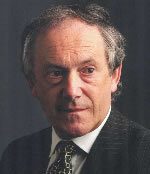
“Thermodynamics, like much of the rest of science, takes terms with an everyday meaning and sharpens them—some would say, hijacks them—so that they take on an exact and unambiguous meaning. We shall see that happening throughout this introduction to thermodynamics. It starts as soon as we enter its doors. The part of the universe that is at the centre of attention in thermodynamics is called the system. A system may be a block of iron, a beaker of water, an engine, a human body. It may even be a circumscribed part of each of those entities. The rest of the universe is called the surroundings. The surroundings are where we stand to make observations on the system and infer its properties. Quite often, the actual surroundings consist of a water bath maintained at constant temperature, but that is a more controllable approximation to the true surroundings, the rest of the world. The system and its surroundings jointly make up the universe. Whereas for us the universe is everything, for a less profligate thermodynamicist it might consist of a beaker of water (the system) immersed in a water bath (the surroundings).”
― The Laws of Thermodynamics: A Very Short Introduction
― The Laws of Thermodynamics: A Very Short Introduction
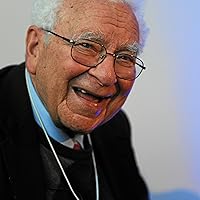
“[Evolution] is reminiscent of the way that the temperatures of a hot object and a cold object placed in contact with each another approach thermal equilibrium, in conformity with the second law of thermodynamics.”
― The Quark and the Jaguar: Adventures in the Simple and the Complex
― The Quark and the Jaguar: Adventures in the Simple and the Complex
“Arm Chair Version of the Laws of Thermodynamics
Law 0: If you touch anything, you're in the game.
Law 1: Life is a game.
Law 2: You can't win.
Law 3: You can't even break even; you can't tie.”
―
Law 0: If you touch anything, you're in the game.
Law 1: Life is a game.
Law 2: You can't win.
Law 3: You can't even break even; you can't tie.”
―

“...Why is it that from the moment you enter medical school to the moment you retire, the only disorder that you will ever diagnose with a physics textbook is obesity? This is biology folks, it's endocrinology, it's physiology - physics has nothing to do with it. The laws of thermodynamics are always true, the energy balance equation is irrelevant...”
―
―

“When I was lecturing recently to a group of cardiologists at the Mayo Clinic I said...
Why is it that from the moment you enter medical school to the moment you retire, the only disorder that you will ever diagnose with a physics textbook is obesity? This is biology folks, it's endocrinology, it's physiology - physics has nothing to do with it. The laws of thermodynamics are always true, the energy balance equation is irrelevant.
If someone's getting fatter I guarantee you they're taking more energy than they expend (as long as they're getting heavier). And if they're getting leaner I guarantee they're expending more than they're taking in. [It's] given, let's never discuss it again. And if you say it to your patients you're telling them nothing
(University Of Colorado Medical School, May 9th 2013 - via YouTube)”
―
Why is it that from the moment you enter medical school to the moment you retire, the only disorder that you will ever diagnose with a physics textbook is obesity? This is biology folks, it's endocrinology, it's physiology - physics has nothing to do with it. The laws of thermodynamics are always true, the energy balance equation is irrelevant.
If someone's getting fatter I guarantee you they're taking more energy than they expend (as long as they're getting heavier). And if they're getting leaner I guarantee they're expending more than they're taking in. [It's] given, let's never discuss it again. And if you say it to your patients you're telling them nothing
(University Of Colorado Medical School, May 9th 2013 - via YouTube)”
―
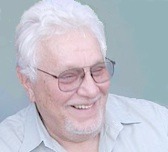
“The existence of matter and energy in the universe did not require the violation of energy conservation at the assumed creation. In fact, the data strongly support the hypothesis that no such miracle occurred. If we regard such a miracle as predicted by the creator hypothesis, then the prediction is not confirmed.”
― God: The Failed Hypothesis: How Science Shows That God Does Not Exist
― God: The Failed Hypothesis: How Science Shows That God Does Not Exist

“For a finite-size flow system to persist in time (to live), its configuration must evolve in such a way that provides easier access to the currents that flow through it.”
― Design in Nature: How the Constructal Law Governs Evolution in Biology, Physics, Technology, and Social Organization
― Design in Nature: How the Constructal Law Governs Evolution in Biology, Physics, Technology, and Social Organization
“Indeed, I once did a little exercise: I took about half a dozen economics books, the big fat ones like Samuelson’s, and so on, and looked up in the index: do the words “energy,” “entropy,” or “thermodynamics” ever occur? Not once in any of them. Energy! You can’t even have a f——king dream at night without energy.
[Quoting physicist Geoffrey West.]”
― Complexity Economics: Proceedings of the Santa Fe Institute's 2019 Fall Symposium
[Quoting physicist Geoffrey West.]”
― Complexity Economics: Proceedings of the Santa Fe Institute's 2019 Fall Symposium

“There are four laws. The third of them, the second law, was recognized first; the first, the zeroth law, was formulated last; the first law was second; the third law might not even be a law in the same sense as the others." P.W. Atkins on the laws of thermodynamics.”
―
―
“The production of heat alone is not sufficient to give birth to impelling power: it is necessary that there should also be cold; without it, the heat would be useless.”
― Reflections on the Motive Power of Fire: And Other Papers on the Second Law of Thermodynamics
― Reflections on the Motive Power of Fire: And Other Papers on the Second Law of Thermodynamics
“Representation is a process of informational triangulation. Its aim is the specification of distal stimuli. It achieves that aim by corralling the output of multiple information channels integrated at their point of confluence. The integration process, in short, disambiguates individual information channels via the mutual constraints each channel provides others. The specificity won thereby falls on a continuum from the highly unspecific (simple transducers, little integrative depth) to the highly specific (subtle transducers, manifold integration).”
― Simple Minds
― Simple Minds

“He asked: “You are aware of the Second Law of Thermodynamics, right?”
“‘You Do Not Talk About Thermodynamics?’” Rudy said nothing. “The currency of the universe, Entropy. Okay and…?”
“A candle that burns twice as bright burns half as long.”
“That seems unrelated, but I’ll allow it. Is that supposed to be comforting?”
“I like either the lavender or cinnamon-scented ones.”
“This isn’t the advice I was asking for and you know that.”
“Isn’t it? You know, it doesn’t take a master’s in behavioral psychology to see you’ve some unresolved issues.”
“And the universe has a tendency to devolve into chaos, so why bother controlling it, just control myself?”
Rudy just continued to shoot glances at Danny’s arm. Danny kept it face down, pretending not to notice.
“Rudy: Sigmund Freud meets Dr. Seuss. Thank you.”
― Dysfunction
“‘You Do Not Talk About Thermodynamics?’” Rudy said nothing. “The currency of the universe, Entropy. Okay and…?”
“A candle that burns twice as bright burns half as long.”
“That seems unrelated, but I’ll allow it. Is that supposed to be comforting?”
“I like either the lavender or cinnamon-scented ones.”
“This isn’t the advice I was asking for and you know that.”
“Isn’t it? You know, it doesn’t take a master’s in behavioral psychology to see you’ve some unresolved issues.”
“And the universe has a tendency to devolve into chaos, so why bother controlling it, just control myself?”
Rudy just continued to shoot glances at Danny’s arm. Danny kept it face down, pretending not to notice.
“Rudy: Sigmund Freud meets Dr. Seuss. Thank you.”
― Dysfunction
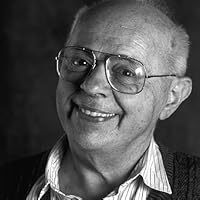
“The urge to destruction is deducible from thermodynamics. Life is a fraud, an attempt at embezzlement, seeking to circumvent laws otherwise inevitable and implacable; insulated from the rest of the world, it immediately enters the path of decay, and that inclined plane leads to the normal state of matter, to the permanent equilibrium that is death. In order to continue living, life must feed on order, but because there is no order--none highly organized--other than life, it is condemned to consume itself. It must destroy to live, must take its nourishment from systems that are nourishment only to the extent that they can be ruined. Not ethics but physics determines this law.”
― His Master's Voice
― His Master's Voice
“For Serres, everything exists in at least three distinct broad temporalities (At 126–7) which can be further subdivided and combined in different ways. The fi rst time is the reversible, clockwork time of the classical age, when no fundamental law was thought to dictate the direction of time’s flow. The second time is the globally entropic time of the second law of thermodynamics, of Carnot’s heat engine that carries everything towards death. This thermodynamic principle was formalised in 1865 by Rudolph Clausius who, drawing heavily on Carnot’s work on heat engines, coined the term ‘entropy’ to describe the irrecoverable heat inevitably lost from any mechanical system. Laplace brings this irreversible time into the natural sciences with a cosmogony that supplements Newton’s reversible cosmology with a dimension of becoming (JVSH 36), and Darwin inscribes irreversible time at the heart of the natural sciences (JVSH 39). The eternal universe of Pascal is no more: ‘Immersed in time the universe likewise is born, develops, evolves, wears out and, perhaps, will die’ (JVSH 36).133 Time enters into science. The third time is the locally negentropic time of codes and information, preserving complexity against the general decay of order (H4 287).134 The idea of negentropy was developed in the 1930s, describing a pocket of information preserved in a wider context of entropic decay (see JVSH 136). It is a time encrusted in the living beings who ‘follow an evolution that Bergson called creative, of which we can at least say that it runs in the opposite direction to the thermodynamic arrow’ (H5 79) (Watkin 2020: 132)”
― Michel Serres: Figures of Thought
― Michel Serres: Figures of Thought
All Quotes
|
My Quotes
|
Add A Quote
Browse By Tag
- Love Quotes 99k
- Life Quotes 78k
- Inspirational Quotes 74.5k
- Humor Quotes 43.5k
- Philosophy Quotes 30.5k
- Inspirational Quotes Quotes 28k
- God Quotes 26.5k
- Truth Quotes 24k
- Wisdom Quotes 24k
- Romance Quotes 24k
- Poetry Quotes 22.5k
- Life Lessons Quotes 21.5k
- Death Quotes 20.5k
- Quotes Quotes 19.5k
- Happiness Quotes 19k
- Hope Quotes 18k
- Faith Quotes 18k
- Inspiration Quotes 17k
- Spirituality Quotes 15.5k
- Religion Quotes 15k
- Motivational Quotes 15k
- Relationships Quotes 15k
- Life Quotes Quotes 15k
- Writing Quotes 15k
- Love Quotes Quotes 14.5k
- Success Quotes 13.5k
- Motivation Quotes 13k
- Time Quotes 12.5k
- Science Quotes 12k
- Motivational Quotes Quotes 11.5k

